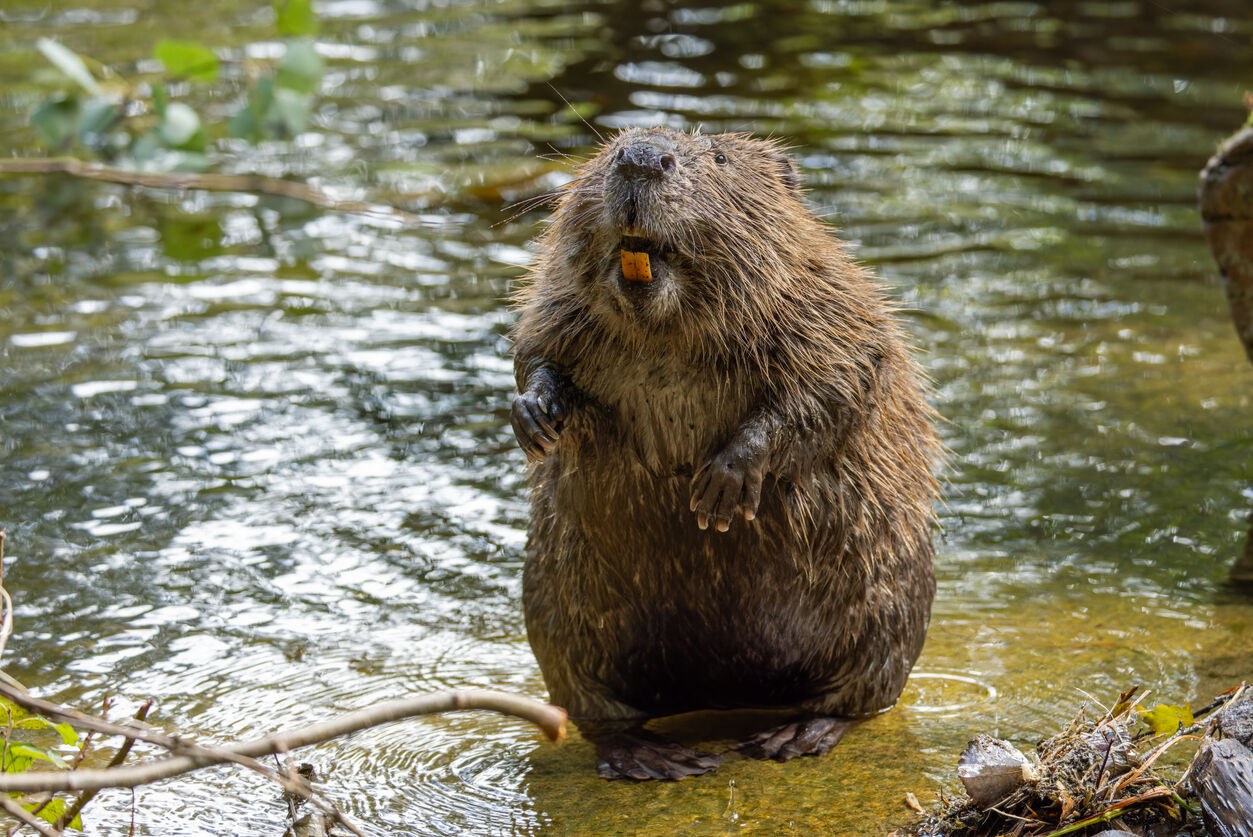Beaver carcass on Gunnison River tests positive for tularemia

A beaver has tested positive for tularemia, a bacterial disease, after being found dead last week at the Gunnison River Whitewater Park.
According to Colorado Parks and Wildlife (CPW), the carcass was examined by CPW’s Wildlife Pathologist and submitted to Colorado State University’s (CSU) Veterinary Diagnostic Laboratory, where it was confirmed the animal was positive for tularemia.
CPW said that tularemia is a bacterial disease that affects rabbits, hares, beavers, and other rodents throughout Colorado. It is less commonly found in other species including domestic animals and humans.
“A diagnosis of tularemia in a wild animal in Colorado is now unheard of,” said CPW Wildlife Health Veterinarian Peach Van Wick, in a press release. “However, CPW’s Wildlife Health Lab usually only receives reports of tularemia in wildlife a couple of times per year. Large-scale outbreaks are less common.”
Infections can be fatal if they are not diagnosed and treated properly, and CPW recommends that the public always keep their pets away from wildlife and not let them consume carcasses. CPW also reminded the public that they should never handle sick or injured wildlife.
Tularemia is caused by the bacteria Francisella tularensis, and infection with this type of bacteria is fatal in rabbits, beavers, squirrels, and other rodents. CPW says that infection is usually transmitted through ticks, biting flies, and fleas. Wild carnivores and pets can be infected from eating carcasses, and any species can be infected through tick, fly, and flea bites.
Hunters and trappers could also be exposed to the bacteria when skinning carcasses, handling tissues or consuming tissues from an infected animal. CPW says that hunters should not skin or consume animals that they observe to be sick or dead. Hunters should also protect themselves from contact with tissues, fluids, and parasites such as ticks and fleas when field dressing carcasses.
Infection can also occur less commonly through ingesting food or water contaminated with animal wastes or infected carcasses. Infection may also occur from breathing aerosolized bacteria, which can happen when mowing over dead rabbit or rodent carcasses.
CPW says you should contact your physician immediately if you feel sick or develop ski lesions after contact with wild animals, ticks, fleas, or other biting insects.
Contact Gunnison County Health & Human Services at 970-641-3244 if you’ve been exposed to wildlife that has tested positive for tularemia.
CPW said that they appreciate the public reporting sick or dead wildlife and that they are interested in additional beaver mortality along the Gunnison River west of Gunnison.
Learn more about preventing tularemia exposure in humans when outside and during hunting activities here.
Get OutThere
Signup today for free and be the first to get notified on new updates.






